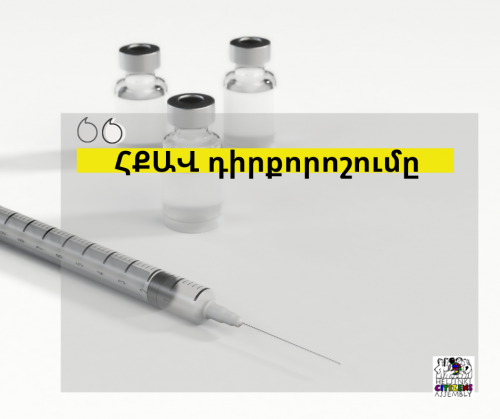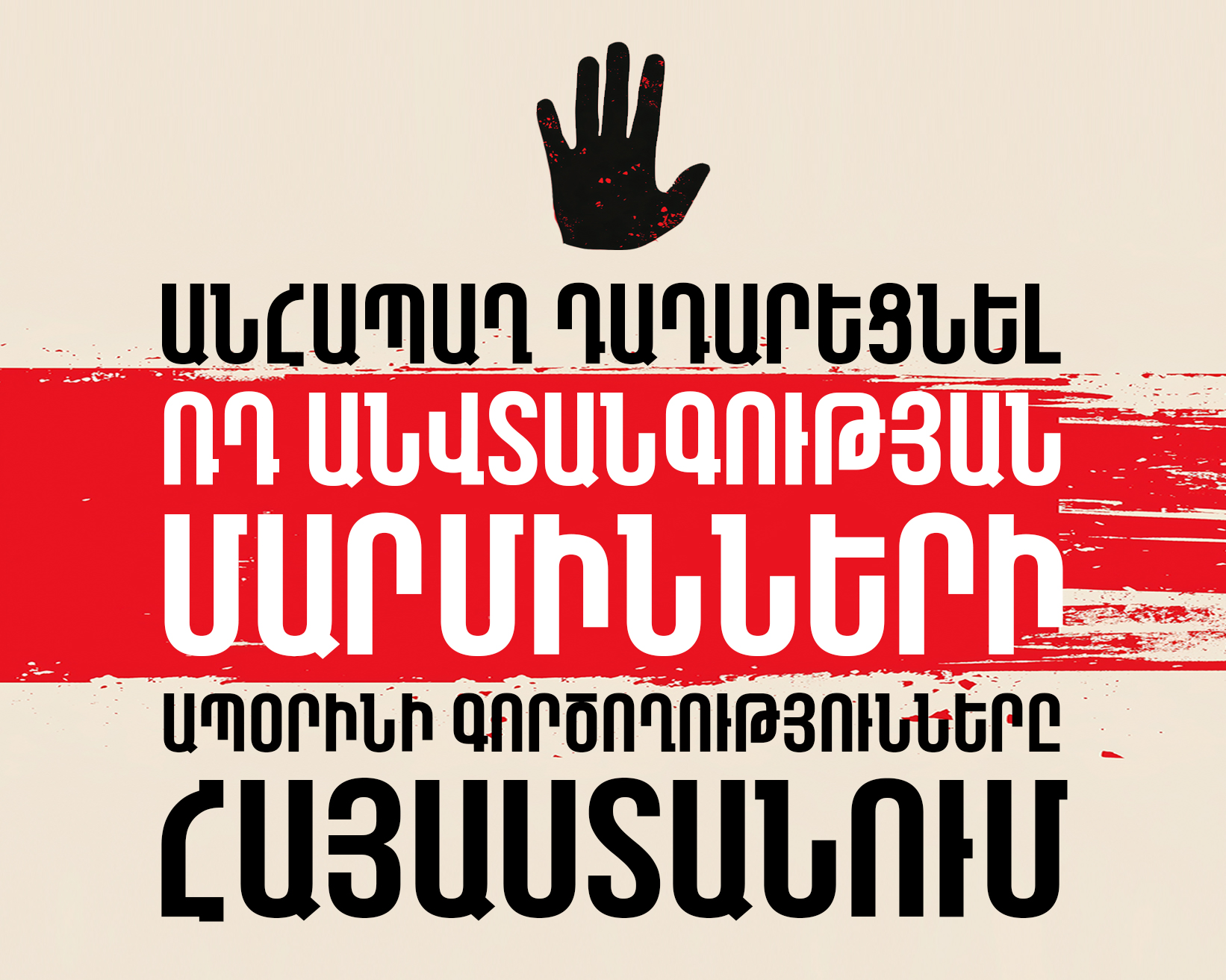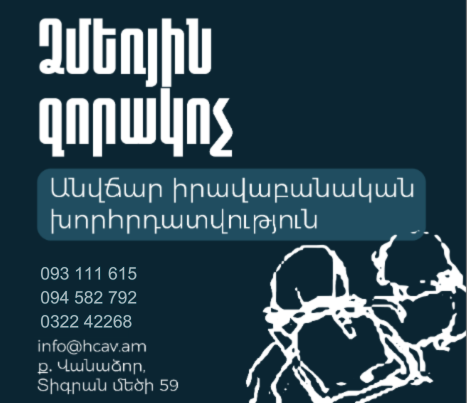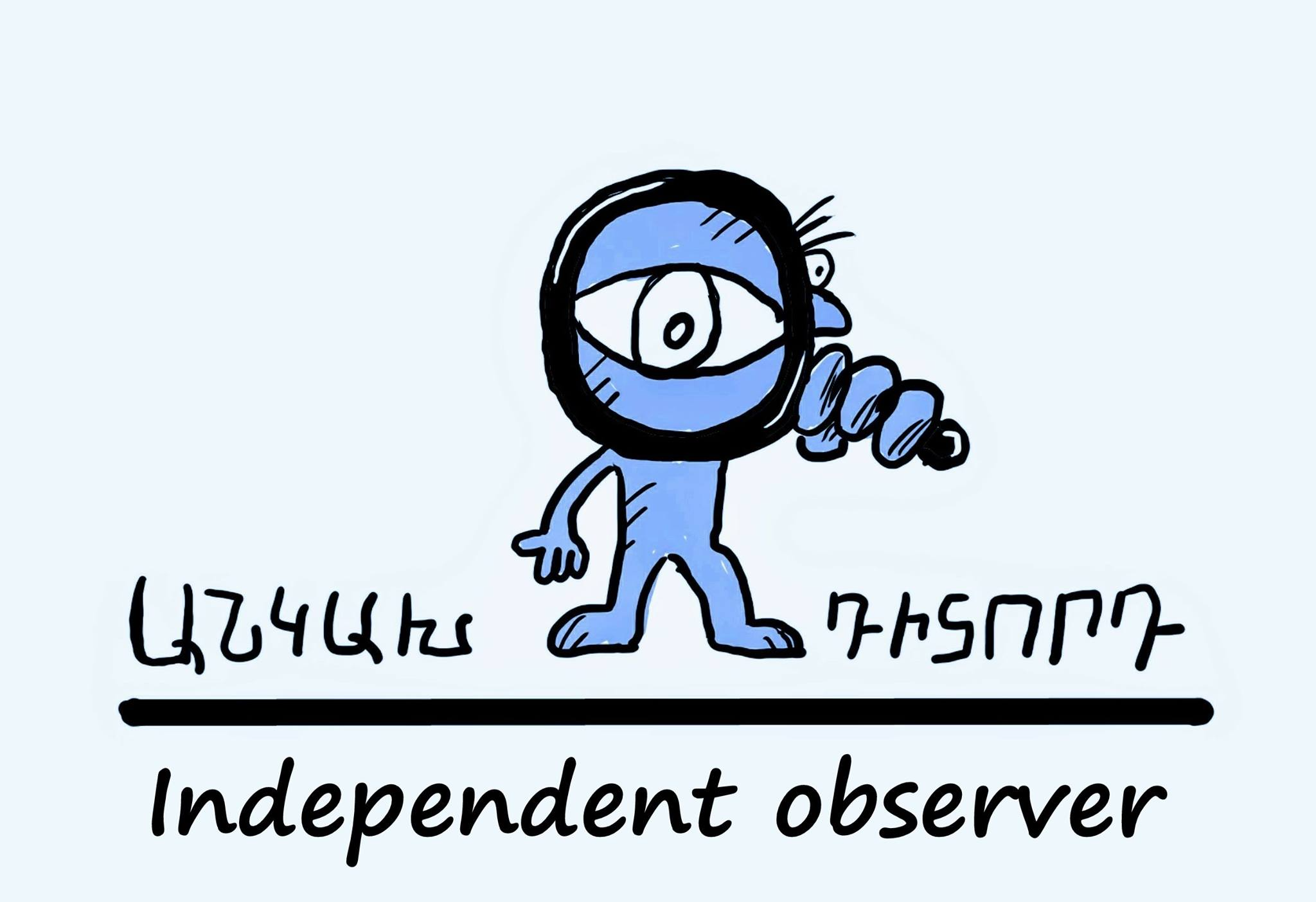




“This Organization managed to prevent my family from emigration, and I am grateful for that”, Lilit Antonyan
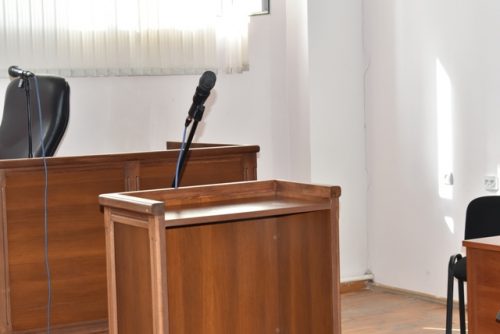
COVID-19 | Activities | Legal Support | Legal Support | Success stories | Publications | Human Rights in the State of Emergency | News
“Over the past 4 years, I have been busy trying to win a competition. I can’t manage to do it. I won once, but it was a temporary position. The institute of competitions might be reviewed. If guided by law, one can also win, but if violations are made by those who are supposed to keep the established order, then it’s better not to conduct those competitions at all”, this is how Lilit Antonyan starts her odyssey. In 2018, Lilit decided to take part in the competition for the vacancy of the chief specialist of risk assessment, inspection planning, analysis and evaluation department of the Education Inspection Body of the RA Ministry of Education and Science.
During the competition, she witnessed the commission’s discriminatory attitude. According to Lilit, the assessment of the oral phase was not objective, since the commission had a preconceived attitude towards her opponent. In the questionnaire of 100 questions on legislations of various spheres, 75% of Lilit’s, as well as her opponent’s answers were right. Lilit maintains that she should have won, however, the commission of the competition rated her answer 60 points and as a result, she did not manage to pass the interview stage.By the decision No. 7, made by the head of the competition commission on June 14, 2018, Lilit Antonyan’s opponent was recognized as the winner of the competition.
L. Antonyan appealed the competition’s results in the Civil Service Council. However, the decision remained unaltered. The unfair decision encouraged Lilit to keep on struggling and she applied to HCA Vanadzor to get legal aid. On August 15, 2018, a lawsuit was filed in the Administrative Court to recognize invalid the competition commission’s decision No. 7 dated June 14, 2018. First, Emma Shahinyan and Mariam Karapetyan, lawyers of HCA Vanadzor’s representative office in Yerevan, and then Hayk Hakobyan, advocate of the Organization represented her interests in the Court.
“If you retreat, things will be as people want them to be. If you don’t struggle, even without any hope, if you don’t fight for your rights, there will be no-one to take care of you, you have no alternative. This Organization supported me when I was extremely frustrated, and I was thinking I had to leave the country and settle down elsewhere, where my knowledge would be appreciated. I would have probably left the country but for the revolution, as before that I had already appealed the decision once and was rejected. I had no expectations in my country”, says Lilit, trying to find words of gratitude.
On May 7, 2019, she presents a change in the subject of the application, claiming to recognize invalid the commission’s (that was conducting the competition to fill in the vacancy of the chief specialist of the Inspectorate of the RA Ministry of Education and Science) decision N. 4, dated June 14, 2018, on not passing the interview stage and then on giving her opponent the vacant position, as a result. The Court allowed the change of the claim’s subject. On June 6, 2019, her opponent was involved as a third party.
During the court session Lilit notes that the assessment of the competition’s oral stage was not objective, the respondent party and her opponent claimed that the commission was objective and assessed by the given answers. As to the difference between the points they acquired, her opponent held that it was the result of preparing for the questionnaire individually and presenting them properly.
Having examined all the documents and proofs related to the case, as well as the legal documents applicable in such cases, the Court made observations and remarks. In particular, making a reference to Article 14 of the RA Law “On Civil Service”, which reserves the Civil Service Council the power to determine the procedure of conducting a competition of civil service vacant position, the Court found that the Council violated a number of points of the Procedure.
According to the Court, the rule of preparing the questions and providing the right answers to the competition commission members is not a goal in itself.
It is an important guarantee of the objectivity of assessing the applicants’ answers. Based on their subjective viewpoints, the Commission’s members may qualify answers as incomplete or wrong for various reasons by thus depriving the applicant of the possibility to substantiate the accuracy of the answers.
Therefore, the provision of the question cards’ right answers to the competition’s commission members beforehand is, indeed, an important requirement, and in case this is not done, objectivity of the whole competition may be called into question. As a result, the litigation and checking of the legality of the marks also get more difficult. Whereas, in the presence of the templates of the right answers, the citizen can substantiate and the Court can check the accuracy of the answers.
“I still don’t understand if that approach was applicable only in my case, or there was an accepted methodology of conducting the competition in a way that entailed the selection of the applicant chosen by them before the competition. This is no exception, I think, it was just an example from the circle. The difference was that I had my cup of patience filled and I decided to pursue my rights, and I had no alternative, since the country operated in a way that demanded either good acquaintanceship or other measures or sponsors. I had neither, instead, I had knowledge and diligence. I had no other way”, says Lilit.
During the trial, the respondent assured the Court that even without the template of the right answers, the commission’s members could assess the candidates agreeing on the answers together.
It is here that the Court recorded a violation of one of the the most essential requirements and the absence of a reasonable explanation, based on which, Lilit Antonyan’s doubts regarding the objectivity of the assessment were not in vain. Guided by Article 63 (1) point “a” of the Law “On the fundamentals of administration and administrative procedure”, the Court recognized invalid the decision on plaintiff L. Antonyan not overcoming the competition.
At the same time, the decision on having the position occupied by a third party is also invalid, as a consequence of the invalidity of the competition. The Court did not exclude that Lilit Antonyan could have given correct answers, could have passed the interview stage and be appointed in the position herself out of the two candidates instead of a third person.
Importantly, along with this, the Court also recorded that if the third person finds that damage has been caused to them as a result of invalidity of the illegal competition, they can claim compensation for the damage caused by illegal administration.
Based on the aforementioned, the Court concluded that the claim was grounded. By the judgment dated March 17, 2020, the Court upheld Lilit Antonyan’s claim.
Guided by Article 66 (2) of the RA Code of Administrative Procedure, “If, before the presentation of of the administrative lawsuit, the administrative act was appealed in an administrative procedure, then the lawsuit also involves a claim of litigating the infringing administrative act adopted in regard to the administrative appeal”, the Court also recognized invalid the Civil Service Council’s decision dated June 19, 2018, by which Antonyan’s appeal on the results of the competition was rejected.
Lilit Antonyan is preparing to give it another try in a new competition. She is waiting for the one-month time period to pass to see if it will be appealed or not, after which the Court will officially put the decision into effect. She is hopeful that this time, the competition will be fair and she will be able to strive for the position.
“I think, in societies, where the former ruling regime abused their dominant position in all the possible circles, the activity of HCA Vanadzor is not just necessary, but what is even more, it is something like a lifebuoy, as if you have an oasis in a desert”, Lilit Antonyan concluded.


